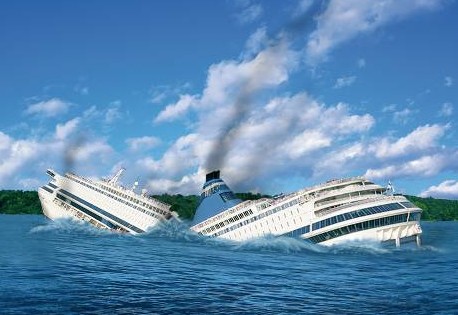Consider a libertarian Titanic, whose insufficient number of lifeboat seats will be auctioned to the highest bidder in the event of a catastrophe. On such a boat, a passenger’s material needs might easily be satisfied — how many fancy meals and full-body spa massages can one endure in a day? But despite that, one could never be “rich enough”. Even if one’s wealth is millions of times more than would be required to satisfy every material whim for a lifetime of cruising, when the iceberg cometh, you must either be in a top wealth quantile or die a cold, salty death. The marginal consumption value of passenger wealth declines rapidly, but the marginal insurance value of an extra dollar remains high, because it represents a material advantage in a fierce zero-sum competition. It is not enough to be wealthy, you must be much wealthier than most of your shipmates in order to rest easy. Some individuals may achieve a safe lead, but, in aggregate, demand for wealth will remain high even if every passenger is so rich their consumption desires are fully sated forever.
Our lives are much more like this cruise ship than most of us care to admit.
Read More | "Trade-offs between inequality, productivity, and employment" | Steve Randy Waldman | ? Interfluidity
